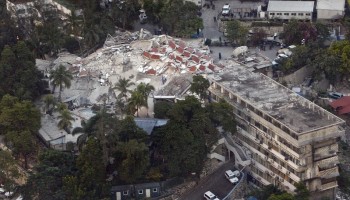“Unfortunately, because of the ease of transportation and the global communications that can reach deep into villages with promises and pictures of what a better life might be, we now see that more human beings are exploited than before. There are as many as 27 million men, women, and children,” said Secretary of State Hillary Clinton when she presented the annual report in Washington.
The annual report assesses anti-trafficking efforts in 184 countries each year. Twenty three countries may now face U.S. sanctions because of their failure to comply with anti-trafficking strategies. A further 41 countries are not fully compliant with international norms and have been placed on a “watch list.”
Using a three tier system, the TIP report provides an assessment of each country’s progress or decline in the past year. Tier 1 Represents countries who fully comply with international standards for minimizing traffic, while Tier 2 represents countries in partial compliance “making significant efforts” to improve.
A Tier 2 watch list includes countries that are in partial compliance but are witnessing rising rates of trafficking or “decreasing evidence of complicity” with international conventions. China remains on the watch list, but India moved up into Tier 2 this year.
Tier 3 encompasses countries not in compliance and making no effort to improve. Algeria, Central African Republic, Equatorial Guinea, Guinea-Bissau, Libya, and Madagascar all fell into Tier 3 in the past year, joining Cuba, Lebanon, Micronesia, North Korea, Turkmenistan, Venezuela and Yemen, and Zimbabwe.
The Office to Monitor and Combat Trafficking in Persons, which authored the report, cataloged 8,548 victims in Europe in 2010, just over half the number identified the previous year. It also noted 1,850 convictions for trafficking, of which 38 were for forced labor.
The Czech Republic slid backwards from the first tier into the second. The report cited the government’s weak resolve to combat labor trafficking and its inability to reduce demand for commercial sex workers.
Azerbaijan and Russia remain on the Tier 2 Watch List, while Albania, Armenia, Bulgaria, Montenegro, Moldova, Latvia, Greece, Kosovo, Romania and Turkey are all characterized as partially compliant.
Macedonia moved up from the second tier to earn top marks joining Bosnia and Herzegovina, Croatia, and Slovenia.
In Africa, Nigeria and Mauritius remain the only states in the first tier. The continent had the most victims this year with 9,626.
Six countries will be sanctioned in the next fiscal year for failing to address the prevalence of child soldiers on their territory: Burma, Chad, the Democratic Republic of Congo, Somalia, Sudan, and Yemen. The governments will not receive international assistance for military education and training, military financing and other military assistance, nor will they be able to obtain licenses for the commercial sale of defense equipment.
The report advocates for an intragovernmental anti-trafficking body in the U.S. which can coordinate the efforts of government agencies, and non-governmental organizations.
The authors maintain that new media outlets, used by traffickers to recruit unsuspecting victims, can be used effectively in the fight against forced slavery.
“Just as modern slavery crosses borders through migrant populations and globalized supply chains, new media can provide international tools for raising awareness, sharing best practices, and demanding government action,” says the report.





